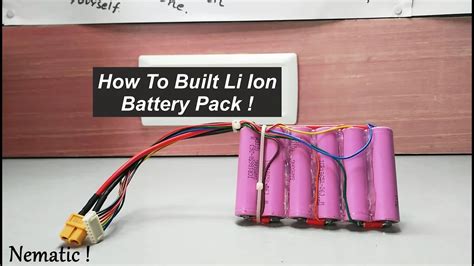Lithium-ion batteries have revolutionized the way we live, work, and interact with technology. From the smartphones in our pockets to the electric vehicles on our roads, lithium-ion batteries play a crucial role in powering modern life. In this article, we'll explore five ways lithium-ion batteries are shaping our world and making our lives more convenient, efficient, and sustainable.
1. Empowering the Mobile Revolution

Lithium-ion batteries have enabled the widespread adoption of mobile devices, including smartphones, tablets, and laptops. These batteries provide a high energy density, long cycle life, and low self-discharge rate, making them ideal for portable electronics. With lithium-ion batteries, we can enjoy hours of uninterrupted entertainment, communication, and productivity on the go.
Key Benefits:
- High energy density: Lithium-ion batteries pack a lot of power into a small package, making them perfect for compact devices.
- Long cycle life: Lithium-ion batteries can be charged and discharged hundreds of times without losing their capacity.
- Low self-discharge rate: Lithium-ion batteries retain their charge for a long time, even when not in use.
2. Electrifying Transportation

Lithium-ion batteries are driving the electric vehicle (EV) revolution, enabling cars, buses, and trucks to run on clean, renewable energy. With lithium-ion batteries, EVs can travel long distances without recharging, making them a viable alternative to traditional fossil-fuel-powered vehicles.
Key Benefits:
- Zero Emissions: Lithium-ion batteries produce no tailpipe emissions, reducing greenhouse gas emissions and air pollution.
- Improved Efficiency: Lithium-ion batteries convert about 60% of the electrical energy from the grid to power the wheels, compared to 20% for gasoline-powered vehicles.
- Lower Operating Costs: Lithium-ion batteries have a longer lifespan and require less maintenance than traditional batteries, reducing operating costs for EV owners.
3. Powering Renewable Energy Systems

Lithium-ion batteries are playing a critical role in the transition to renewable energy by providing a reliable and efficient way to store excess energy generated by solar panels and wind turbines. This enables households and businesses to use renewable energy even when the sun is not shining or the wind is not blowing.
Key Benefits:
- Energy Independence: Lithium-ion batteries allow households and businesses to store excess energy generated by renewable sources, reducing reliance on the grid.
- Improved Grid Resiliency: Lithium-ion batteries can help stabilize the grid by providing a buffer against power outages and fluctuations in energy demand.
- Increased Adoption of Renewables: Lithium-ion batteries make renewable energy more viable and attractive, driving adoption and reducing greenhouse gas emissions.
4. Enhancing Medical Devices and Equipment

Lithium-ion batteries are used in a wide range of medical devices and equipment, including pacemakers, implantable cardioverter-defibrillators (ICDs), and portable defibrillators. These batteries provide a reliable and long-lasting source of power, enabling medical professionals to save lives and improve patient outcomes.
Key Benefits:
- Reliability: Lithium-ion batteries provide a high level of reliability, ensuring that medical devices function as intended.
- Longevity: Lithium-ion batteries have a long lifespan, reducing the need for frequent replacements and minimizing downtime.
- Portability: Lithium-ion batteries enable medical devices to be portable and compact, making them easier to use in emergency situations.
5. Enabling Smart Homes and Cities

Lithium-ion batteries are powering the smart home and city revolution, enabling the widespread adoption of IoT devices, smart lighting, and energy management systems. These batteries provide a reliable and efficient source of power, making it possible to create more sustainable, efficient, and livable cities.
Key Benefits:
- Energy Efficiency: Lithium-ion batteries enable smart homes and cities to optimize energy usage, reducing waste and minimizing carbon emissions.
- Improved Safety: Lithium-ion batteries power safety-critical systems, such as fire detection and alarm systems, ensuring public safety.
- Enhanced Quality of Life: Lithium-ion batteries enable the creation of more comfortable, convenient, and sustainable living spaces, improving overall quality of life.






In conclusion, lithium-ion batteries are transforming modern life by powering a wide range of applications, from mobile devices and electric vehicles to medical devices and smart homes. As technology continues to evolve, we can expect lithium-ion batteries to play an increasingly important role in shaping our world and making our lives more convenient, efficient, and sustainable.
What are the benefits of lithium-ion batteries?
+Lithium-ion batteries offer several benefits, including high energy density, long cycle life, and low self-discharge rate. They are also relatively lightweight and compact, making them ideal for portable electronics and electric vehicles.
What are some common applications of lithium-ion batteries?
+Lithium-ion batteries are used in a wide range of applications, including mobile devices, electric vehicles, medical devices, and renewable energy systems. They are also used in smart homes and cities to power IoT devices and energy management systems.
What is the future of lithium-ion batteries?
+The future of lithium-ion batteries looks bright, with ongoing research and development aimed at improving their performance, safety, and sustainability. Advances in technology are expected to lead to more efficient, cost-effective, and environmentally friendly lithium-ion batteries.
